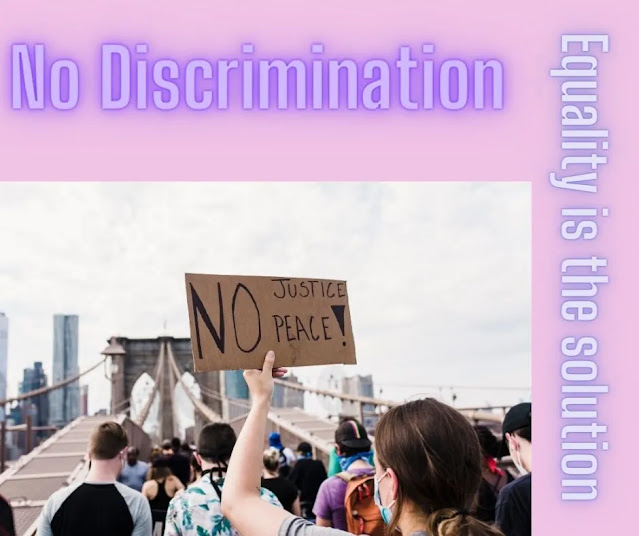What is Discrimination?
Discrimination is the act of treating a person or a group differently from other people or groups of people, often in an unfair way.
Discrimination can occur for many reasons, including but not limited to: gender, age, disability status, sexual orientation, race/ethnicity/national origin, and religion.
Discrimination Definition
Discrimination is the unjust or prejudicial treatment of different categories of people or things, especially on the grounds of race, age, or sex.
Discrimination can be a form of prejudice and may target people who are in a minority group.
What is Stress?
Stress is a mental and physical condition that occurs when the demands of one's life exceed their ability to cope. It can be caused by any number of factors, including work, family, money, or other personal concerns.
Stress can have both positive and negative effects on your health. Stress can cause you to make bad decisions or react in an unhealthy way to a situation. However, it can also motivate you to take action or perform better under pressure.
How Does Discrimination Cause Stress?
Stress is a natural response to an event that the brain perceives as a threat. Stress causes the body to release hormones such as cortisol and adrenaline, which prepare it for a fight-or-flight response.
There are many sources of stress in our lives. Discrimination is one of them, and it can cause stress in two ways: by making us feel threatened or by making us feel marginalized. The first type of stress is caused by discrimination that can lead to violence or other physical harm; the second type of stress is caused by discrimination that makes us feel like we don’t belong or are not accepted in society.
How to Deal with Discrimination and Stress in the Workplace
It is important to understand that there are several ways to deal with discrimination and stress in the workplace. It is important to find what works for you and your personality.
In order to make sure that we are not being discriminated against, we should be proactive in our approach. We should make sure that we have a clear understanding of the company’s values and policies, as well as our own values and beliefs. We should also know how to handle any conflict situations that might arise with co-workers or supervisors.
It is important for us to feel valued at work so we can remain productive throughout the day. It is also very important for us to take care of ourselves outside of work so that when it comes time for work again, we can be ready and willing to get back into
Discrimination and Disparities
Discrimination in the workplace is a significant problem. It is an issue that needs to be addressed in order to create a more equal and fair society.
The most common form of discrimination is racial discrimination. It can take on many different forms, such as not being hired for a job, not getting promoted, or being fired from the job for no good reason. Racial discrimination has been around for centuries and it is still present today in many workplaces across the world.
There are also other types of discrimination that may occur in the workplace such as gender or sexual orientation. In some countries, women are paid less than men for doing the same job with similar qualifications. Sexual orientation also plays a major role in workplace discrimination where an LGBT person may be discriminated against because of their sexual preference or identity.
Discrimination is defined as any unjust or prejudicial treatment of different categories of people or things, especially on the grounds of race, age, or sex. Discrimination can be unintentional, such as a byproduct of one's own biases. It can also be intentional, such as when an employer refuses to hire someone because they are a member of a certain group.
Gender discrimination is not just about unequal pay for men and women. It also includes unequal representation in the workplace and unequal opportunities for promotions and advancement. Women are still underrepresented in sectors like STEM (science, technology, engineering and mathematics) and male-dominated occupations like construction work. In these cases, there's often a lack of female mentors to guide young women into those fields, to begin with.
Conclusion: How To Prevent Discrimination And Reduce The Effects Of It On Your Mental Health
This article will help you understand what discrimination is and how to prevent it. It will also teach you how to deal with discrimination when it happens.
In this article, we have discussed the ills of discrimination, its effects on your mental health, and the various ways in which you can tackle this problem. We hope that by reading this article, you will be able to make a more informed decision about whether or not to be discriminated against.










No comments:
Post a Comment
Edit your Comment